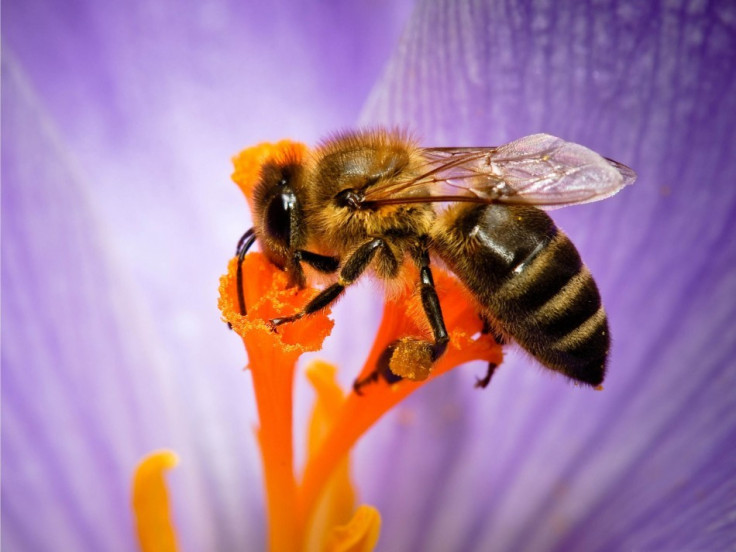Bee Sting Venom Can Halt HIV, Say Doctors

The sting of a bee could provide a breakthrough in the fight against HIV infection.
Toxins in the insects' venom can destroy the virus and leave surrounding cells unharmed, suggest research studies.
Scientists believe it is an important step towards developing a gel to stop the spread of the HIV virus, which causes Aids.
The principal ingredient of bee venom, melittin, 'drills' a hole in the virus envelope, and disables it by essentially skinning it alive.
Researchers inserted the toxin into tiny nanoparticles fitted with special 'bumpers' so they can bounce off normal cells.
When the smaller HIV virus makes contact with them, it slips between the bumpers and is attacked by the toxin.
Study expert Dr Joshua L Hood, of Washington University School of Medicine, said the toxin could be used in a vaginal gel to prevent HIV spreading.
He said: "Our hope is that in places where HIV is running rampant, people could use this gel as a preventive measure to stop the initial infection."
Most drugs slow the growth of the virus, but the bee venom attacks and kills it to prevent infection in the first place.

Dr Hood, who co-authored the study in the journal Antiviral Therapy, added: "We are attacking a physical property of HIV. Theoretically, there isn't any way for the virus to adapt to that."
Rather than an injectable cure, the hope is that these nanoparticles could one day be used as a preventive measure, stopping HIV before it can make its way into the bloodstream.
However, there has been a dramatic drop in the bee population worldwide, linked to usage of pesticides in agriculture. Last year, UK beekeepers experienced around 30-100 per cent loss of their honey bees. Wild bees (pollen bees) also experienced huge declines attributed to habitat loss because of human activities and building developments.
Around 34 million people live with HIV worldwide, according to the World Health Organisation. The vast majority are in low- and middle-income countries, and an estimated 2.5 million people were newly infected with the virus in 2011.
HIV is currently the world's leading infectious killer, and around 25 million people are thought to have died with the disease.
© Copyright IBTimes 2025. All rights reserved.






















